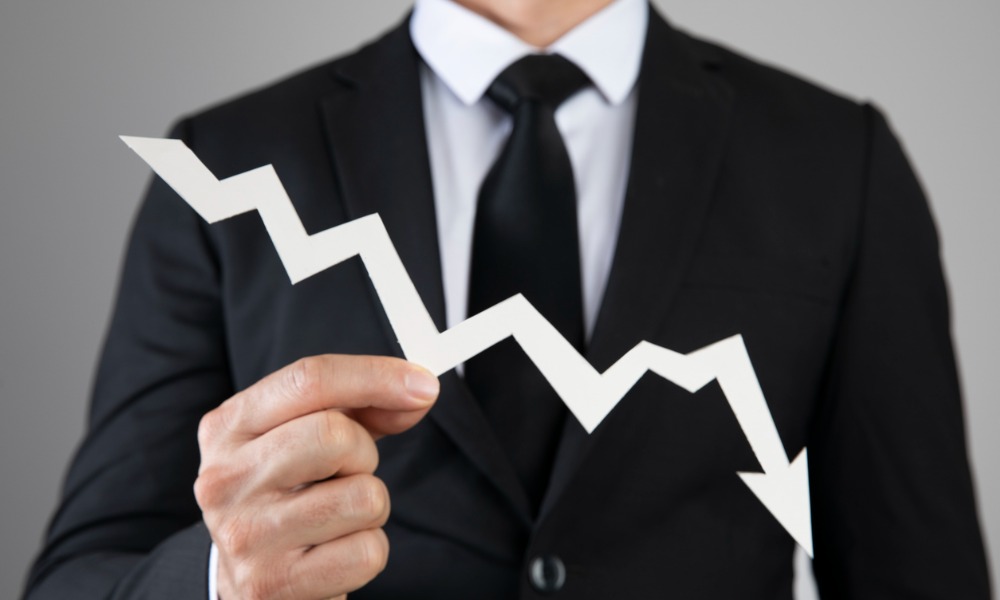Francis Sabourin explains his outlook for the embattled aerospace company after announcement that the CEO will step down

Earlier this week Boeing CEO Dave Calhoun announced that he will be departing the aerospace company at the end of the year. The announcement follows a succession of troubling headlines, airplane groundings, and one midair disaster, largely revolving around Boeing’s 737 Max airplanes. The issues with these planes, as well as other engineering problems and the late or incomplete delivery of orders, have sent the stock into a tailspin and made investors and consumers question the Boeing brand.
Francis Sabourin, director of wealth management and portfolio manager at Francis Sabourin Wealth Management of Richardson Wealth is seeing the Boeing story play out in his work and his daily life. While planning a trip with his wife, she asked him recently what they’d be flying. When he replied ‘Air Canada’ she asked him what kind of plane they would be on. She didn’t want to be in a Boeing jet.
That anecdote shows some of the reputational damage Boeing now must overcome and highlights why their stock price has fallen over 25 per cent since the start of 2024. Their sole competitor, Airbus, is up over 20 per cent in the same period. Sabourin explained how he’s viewing the stock in this context, what he thinks is ahead for the aerospace company and how advisors should approach the temptation to buy the dip on what remains one of the world’s largest aerospace firms.
“From an outside investor’s point of view, Boeing is kind of like a fallen angel. They will come back one day, but that will take time and new leadership,” Sabourin says. “It’s a manufacturing chain process which takes time, and all the suppliers, checks, adjustments, and control will take years to get right. In the meantime, you will have flight cancellations, order cancellations, some of their clients will sue them over missed deliveries. We still have a few quarters of negative announcements ahead. One day it will become a really clever value play, but right now I will let the new management take over.”
Sabourin explains that in an effort to become more shareholder friendly, Boeing cut costs to deeply and spun off too many of their businesses, which has compromised the quality of their engineering. The 2005 decision to spin off some of their manufacturing and servicing operations as Spirit Aerosystems has come to dilute much of Boeing’s engineering and manufacturing capabilities. That decision, and others like it, has contributed to the company’s current issues, such that Boeing has announced plans to re-acquire Spirit at what is likely to be significant cost, largely involving debt financing.
Boeing has not turned an annual profit since 2018. It is lagging behind Airbus in the delivery of orders and it has reduced factory output to tackle its quality issues. Airbus is in a net cash position while Boeing is now adding on debt.
That is much of why Sabourin is cautioning against a buy the dip approach as of now. Even though Boeing retains its biggest customer in the United States military, the preponderance of their business is in commercial airplane sales and that business is struggling. Reputational harm from accidents or setbacks are all the more acute in airplanes, Sabourin adds. A tech company or even a car company can botch a product and recover relatively quickly, but there’s something about airplane issues that make consumers keenly aware and afraid. When the new leadership team at Boeing is named, they will have to build back from that significant reputational damage.
Sabourin expects that the new CEO will come from Airbus, the only other company that builds jets of the scale and size that Boeing does. He is watching for the culture that comes with the leadership change and the decisions made around ongoing engineering, manufacturing, and delivery issues. In the short-term he expects Airbus to take more market share from Boeing, becoming almost more like a monopoly than the current duopoly. Over time that should give Boeing the opportunity to outcompete, but Sabourin cautions against declaring the rebirth of Boeing too early.
“It will be back, but that’s not the story of the day,” Sabourin says. “There are honestly too many clouds around their heads right now. Let’s give them a few quarters to understand what kind of leadership they will add. They still have challenges ahead of them and it will not be a quick fix. For me, if a client wants to add exposure I will tell them to pace themselves, find a decent entry point and add exposure bit by bit. I don’t think you should buy the dip on this one.”


